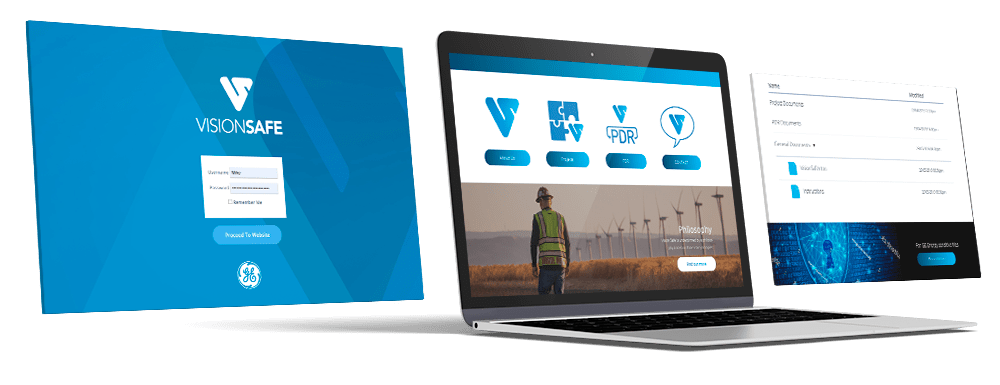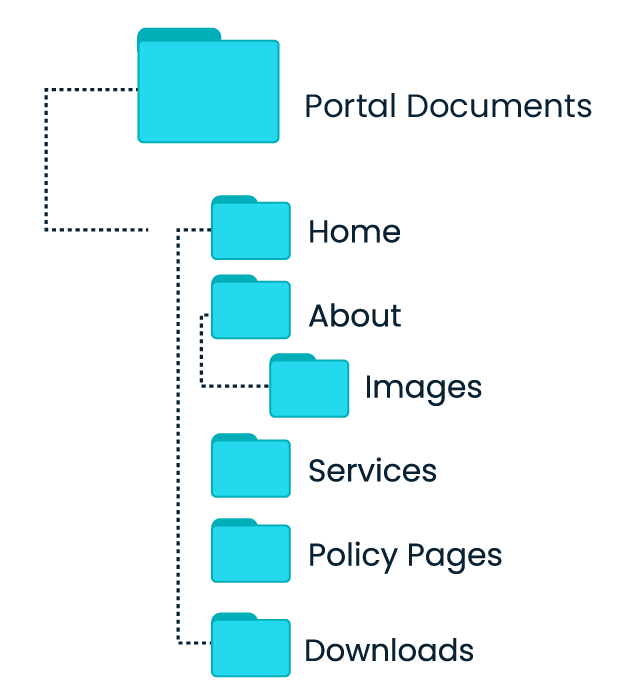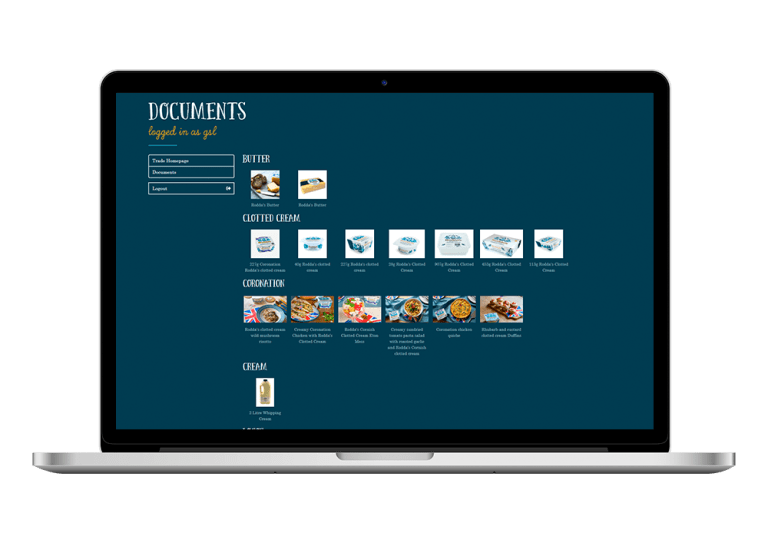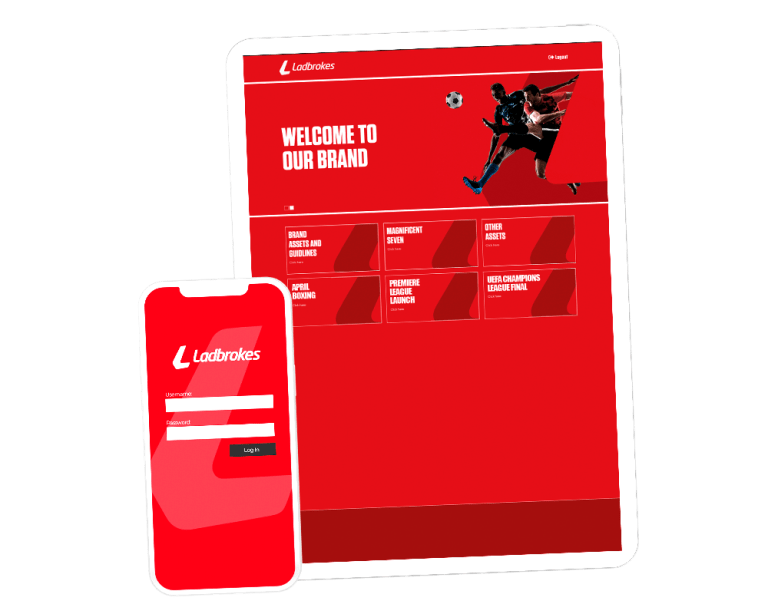Portals, Websites
ILD-IN is a dynamic network dedicated to serving as an valuable resource for healthcare professionals specialising in Interstitial Lung Diseases.

what we do
Are you looking for a secure area for your clients where they can access information? Do you have an ecommerce store where you want to get more from the accounts area? Does your informational website need a secure place for files?


A client may seek a portal for their website to provide a centralised and secure platform for their customers or employees to access information, services, and resources. Portals offer convenience and efficiency by offering a one-stop location where users can access personalised content, collaborate with others, and perform various tasks. By having a dedicated portal, clients can enhance user experience, streamline processes, and foster better communication and engagement.
Moreover, a portal can serve as a valuable tool for client retention and loyalty. It allows clients to feel connected and valued by providing them with exclusive access to relevant information, personalised services, and specialised resources. By creating a secure and private environment, portals enable clients to interact with the business on a deeper level, fostering trust, strengthening relationships, and ultimately leading to improved customer satisfaction and long-term loyalty.
If your customers need to exchange sensitive information or access confidential documents, a secure portal provides a safe and controlled environment.
A secure portal allows you to grant access to specific users or user groups, ensuring that only authorised individuals can view or interact with the content. This is useful for organisations that need to share information selectively.
Secure portals can facilitate collaboration between different stakeholders, such as employees, clients, partners, or vendors. Users can securely share files, exchange messages, collaborate on projects, and provide feedback.
Secure portals can automate and streamline various processes, such as client onboarding, or customer support. Portals can improve efficiency, reduce paperwork, and enhance the overall customer experience.
Certain industries, such as finance, healthcare, or legal, have stringent compliance regulations regarding data privacy and security. A secure portal helps organisations meet these requirements by providing encryption, and audit trails..
recent work
Portals, Websites
Ecommerce, Portals, Websites, WooCommerce

Ecommerce, Portals, Websites, WooCommerce

Portals, Websites

A portal provides a centralised platform for global file access, allowing users from different locations to securely access and collaborate on files and documents. This eliminates the need for email attachments or physical transfers, enabling real-time collaboration and seamless file sharing. Whether it’s a multinational organisation with offices worldwide or a distributed team working remotely, a portal ensures that employees can easily access the files they need, regardless of their location or time zone. This streamlines workflows, enhances productivity, and fosters efficient collaboration among team members, irrespective of geographical boundaries.
In addition to global file access, portals also facilitate individual file access for users. Each user can have their own personalised space within the portal, where they can securely store and access their files and documents. This personalised file access ensures that users have control over their own data and can conveniently manage and retrieve their files as needed. By offering individual file access, portals provide a user-centric approach, allowing users to organise their documents, maintain version control, and retrieve files effortlessly, leading to improved productivity and a more organised work environment.

Event management can be integrated within a portal to provide a comprehensive platform for organising and managing events. By incorporating event management features into a portal, organisers can streamline the planning and execution processes, enhance attendee engagement, and gather valuable data for analysis and improvement.
Within a portal, event management functionalities can include features such as event registration, ticketing, and attendee management. Users can easily register for events, select ticket types, and make payments securely within the portal. This centralised registration process eliminates the need for separate event registration platforms, simplifies the attendee experience, and provides organisers with a unified view of event registrations.
Additionally, event management within a portal can enable effective communication and engagement with attendees. Organisers can share event details, updates, and important information through the portal’s messaging or notification systems. They can also provide attendees with access to event agendas, session schedules, speaker profiles, and interactive features like live polls or Q&A sessions. This enhances attendee experience, encourages participation, and creates a sense of community among event participants.
Moreover, event management within a portal offers valuable data and analytics capabilities. Organisers can gather data on attendee demographics, registration patterns, session attendance, and post-event feedback. This information can be used to measure event success, identify areas for improvement, and make data-driven decisions for future events. The portal’s reporting and analytics features provide organisers with valuable insights that can optimise event planning and enhance overall event effectiveness.
Building a custom portal allows for comprehensive backend control, providing administrators with full authority over the portal’s functionality, data management, and user access.
In a custom portal, administrators have the freedom to design and develop a backend control system tailored to their specific needs. They can create a backend administration panel with custom features and functionalities, giving them complete control over content creation, user management, security settings, and more.
One of the key advantages of a custom portal is the ability to define role-based access control. Administrators can create different user roles and assign specific permissions and privileges to each role. This allows for fine-grained control over user access, ensuring that individuals have appropriate levels of authorization to view, edit, or contribute to the portal’s content and features.
Custom portals also offer flexibility in user registration and management. Administrators can implement a customised user registration process that aligns with their specific requirements. They can establish approval mechanisms, manage user accounts, and implement password reset functionalities to ensure secure user management.
Additionally, a custom portal allows for the integration of advanced backend control features. Administrators can incorporate activity logging, analytics, and reporting functionalities to monitor user actions, track system performance, and gather valuable insights. This empowers administrators to make informed decisions and take necessary actions based on backend data and analytics.


A secure web space within a portal for generic information and blogs provides a protected environment where users can access and contribute to valuable content while ensuring the confidentiality and integrity of the information. This secure web space acts as a platform for sharing relevant information, updates, and insights, promoting knowledge exchange and fostering a sense of community among portal users.
In this secure web space, users can access a wide range of generic information and blogs that are carefully curated and organised. The information can include articles, guides, tutorials, industry news, and other resources that cater to the interests and needs of the portal’s audience. By providing this content in a secure environment, users can confidently explore and access the information without concerns about unauthorized access or data breaches.
Moreover, the secure web space allows users to contribute their own blogs and insights, encouraging knowledge sharing and collaboration. Users can submit their articles or blog posts, sharing their expertise, experiences, and perspectives with the portal community. The secure nature of the web space ensures that only authorised users can contribute content, maintaining the quality and integrity of the information shared.
Building a portal within WordPress offers the advantage of leveraging its preestablished technology, robust security features, and user controls to create a secure and functional portal environment. WordPress provides a solid foundation for developing a portal with built-in security measures and customizable user controls.
In terms of security, WordPress offers various features and plugins that help protect the portal and its users. It provides regular security updates to address vulnerabilities and enhance the platform’s resilience against potential threats. Additionally, WordPress offers user authentication and role-based access control, allowing administrators to define different levels of access for portal users. This ensures that only authorised individuals can access sensitive information and perform specific actions within the portal.
Moreover, WordPress provides a wide range of security plugins that can be utilised to further enhance the portal’s security measures. These plugins offer features such as two-factor authentication, brute-force attack protection, malware scanning, and firewall protection. By incorporating these plugins, developers can bolster the security of the portal and safeguard user data.
Additionally, WordPress offers a user-friendly interface with customisable user controls. Administrators can define user roles and permissions, granting access to specific portal features and content based on user roles. This allows for fine-grained control over what users can view, edit, or contribute within the portal. Furthermore, WordPress provides options for user registration and management, enabling administrators to easily manage user accounts and monitor user activities.

When it comes to choosing a development partner for your business, it’s crucial to find someone who understands your goals and has the right approach to meet your specific needs. A partner plays a vital role in designing, developing, and maintaining your website, making it a key factor in your online success. The right partner will not only possess technical expertise but will also align with your business objectives and offer a collaborative approach to achieve your desired outcomes.
An effective development partner will take the time to understand your business, target audience, and unique requirements. They will engage in thorough discussions to gain insights into your brand, industry, and competitors. By doing so, they can provide tailored solutions and recommendations that align with your overall marketing and business strategies.
Moreover, a reliable partner will emphasise user experience and conversion optimisation. They will work closely with you to create a visually appealing and user-friendly website that engages visitors and guides them towards desired actions. This includes considering factors such as intuitive navigation, clear calls-to-action, responsive design, and page load speed.
Furthermore, the right web partner will adopt a collaborative approach, keeping you involved throughout the process. They will provide regular updates, seek your feedback, and be receptive to your ideas and preferences. Effective communication, transparency, and a proactive attitude are key elements of a successful partnership.
With a custom portal, the possibilities are endless when it comes to incorporating features and functionalities that are tailored to your specific needs.
By integrating various systems, such as CRM, ERP, payment gateways, and marketing automation tools, you can centralise data and streamline processes.
Is something off the shelf right for you when its full of solutions that might not be applicable? When it comes to portal development, creating a bespoke solution tailored to your branding and business needs is crucial.
Tailored portal hosting solutions to meet your needs is paramount. Optimised VPS, dedicated and multi-server hosting is available and comes fully installed and managed.
Having control over your portal is essential for customisation, security, and adaptability. By owning and managing the infrastructure and data, you are in complete control of the intellectual property.
get to know the process
Building a portal that ticks all the boxes, requires careful planning so we need to:
When it comes to designing a portal, the performance is of utmost importance.
Understanding that each portal has unique requirements, your development partner should take a tailored approach based on your specific needs, available resources, and timeframe. You should expect an in-depth discussion and analysis to explore various options and solutions that can improve the performance of your portal. Whether it involves a complete rebuild or refreshing of your existing portal, the goal should be to enhance its performance while aligning with your objectives and budget.
Conversions are crucial for online success. You need a visually stunning and engaging portal that captivates users. Conversion experts should analyse, test, and fine-tune the portal to ensure optimal functionality and effectiveness. Continuous review and refinement of content and assets enables you to maintain fast response and load times, providing visitors with a seamless and satisfying user experience. This not only encourages return visits but also increases the likelihood of positive recommendations.
To achieve optimum performance, our team employs various strategies such as code optimisation, meticulous execution order, server configuration optimisation, and the utilisation of specialised content delivery networks. We leverage cutting-edge tools and applications to further enhance the performance of your portal, ensuring it remains ahead of the competition. Our focus is to create a portal that maximises performance, enabling your business to thrive in the digital landscape.
discuss your needs with an expert
If you’d like to talk to us about your project requirements, simply fill in our online enquiry form and we’ll get back to you straight away to discuss your needs in more depth.
Alternatively, you can call our business development team on 01752 395600 if you want to talk to someone right now.
ON THE BLOG
Registered Office: Brunel Court, 122 Fore Street, Saltash, PL12 6JW
Company No. 08445706 | VAT No. GB 160 6846 03
Disclaimer | Cookie Policy